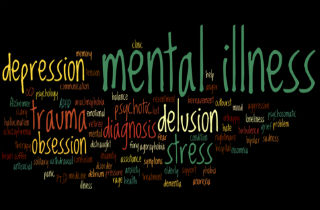The best way to describe mental and physical addiction to alcohol is like the difference between want and need. You may WANT to have a few drinks right now, but your body isn’t physically begging for your blood alcohol level to rise. On the other hand, when you are physically addicted to alcohol…you may want to stop drinking all together, but your body physically NEEDS the alcohol in order to function.
Many may argue that the brain is part of the body and therefore a mental addiction is both physical and physiological. Although this is logically true, a physical addiction to alcohol is at a far different stage in the progression of alcoholism than a mental addiction. That being said, both stages of addictions are serious and should not be taken lightly.
The Mental Addiction
The mental addiction to alcohol is the beginning of the devastating path towards alcoholism. The body may not rely on the alcohol to function yet but there is an obsessive mental desire for it. The mind begins to create a world around drinking alcohol. This constant feeling leads to psychological reinforcement which ultimately leads to alcohol dependence. One drink turns into two and eventually bottles of alcohol are consumed every single day.
The signs and symptoms of having a mental addition to alcohol are the following:
- Inability to meet deadlines and appointments
- Loss of interest in daily activities
- Obsessive thoughts about alcohol
- Problems at work
- Relationship issues
The Physical Addiction
After a certain amount of time and number of drinks consumed, the body becomes dependent on alcohol. The human body likes to remain at a normal equilibrium. If a person is consistently feeding their body a substance into their system, a new “normal” equilibrium is created and the body adjusts accordingly. Once our bodies realize that the normal levels are thrown off, the symptoms of withdrawals occur.
The physical addiction occurs differently from person to person depending on various factors such as amount consumed, time spent drinking, age, and physical health. If a person is physically dependent on alcohol, mild to severe withdrawal symptoms can occur with cessation from drinking. Symptoms of being physically addicted to alcohol can include: (Once abstained from alcohol for a certain amount of time)
- feeling shaky
- high blood pressure
- inability to focus/function without alcohol
- increased anxiety
- insomnia
- irritability
- nausea
- panic
- rapid heart rate
Why are they both serious?
Even though the mental addiction does not cause serious physical health concerns, there are serious mental health issues present and it is usually only a matter of time before the physical addiction sets in. The mental addiction is merely a stepping stone towards the life-threatening disease of alcoholism. If you or a loved one believes that either of these states of addiction to alcohol has been reached, seek professional help immediately.
If you’re ready to totally stop drinking alcohol, there are many resources out there to help alcoholics (or addicts) get back on track and live a life worth living. Please leave your questions or comments for more information on ways to get help.








